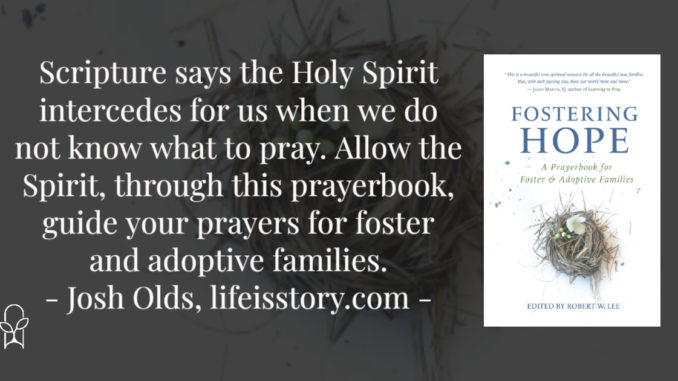
Published by Smyth & Helwys Publishing Genres: Non-Fiction
Buy on Amazon
Goodreads

This is a beautiful volume of prayers and reflections—one that captures much of the nuance and complexity of adoption and seeks to give voice to the variety of people at the center of adoption stories. The book gives space for raw grief and for glimmers of grace, without being overly saccharine about the adoption journey. With its prayers of lament, gratitude, joy, and frustration, this slim volume pricks the heart and stands to encourage any whose lives are touched by adoption and fostering.—The Rev. Meghan F. BensonChaplain, Duke Divinity School
With every adoption journey that my family has taken, people have always asked what they can do to help. My answer has always been the same: prayer and money. While Fostering Hope won’t necessarily help you with the latter (though all proceeds from the book are being donated to a non-profit that helps foster kids), it is an absolute goldmine of prayers for all sort of events—the good and the bad—for the adoption and/or fostering journey.
Full disclosure, I contributed to this book in the form of a few of the prayers and an introductory essay. Thus, I’m pretty biased about this book. Fortunately, I think my biases are pretty well justified as editor Rob Lee brings together a diverse collection of individuals to pen some powerful and holy prayers. Contributors include adoptive and foster parents, adoptive and foster kids, people from various denominations and ethnic backgrounds—it’s a true panoply of theological reflection and experience. Some names you might recognize include Rev. Dr. Chanequa Walker-Barnes, Kate Rademacher, Rev. Dr. Jerusha Neal, Rev. Robert W. Lee, and Jay Bakker.
Fostering Hope is divided into three parts: On Beginnings, The Anything but Ordinary, and On Endings. I had the privilege of introducing the On Beginnings section, speaking a bit about my family’s adoption journeys and how all adoption and fostering is rooted in trauma. We must be very careful not to portray ourselves as a savior who immediately solves the problem of the biological family. Rather, we must engage with and recognize the trauma, entering into it to protect the child or children. There are 26 prayers in this section, from a prayer for beginning the process to a prayer for the waiting process to a prayer for the first night of placement. The contributors cover a variety of topics and while not every prayer will be applicable to every situation, Lee has ensured that everyone will see their story reflected somewhere in the book.
There are 32 prayers in the middle section, introduced by Kimberly L. Carter. A Prayer for Teenagers, for the first day of school, for LGBTQ persons, for a closed adoption, for court dates, for a church supporting an adoption. Again, Fostering Hope covers a lot of ground, giving a testament to the personal and specific stories that these prayers are built on. The final section, introduced by Katie Rademacher, is 17 prayers that end in a blessing from the editor, Robert Lee. Here, we cover prayers for saying goodbye to a foster child, for death in the family, and more.
Each prayer is unique, obviously specific to its author, yet applicable to a wide variety of people. There are short prayers and long prayers, liturgical prayers and simple prayers—you can pray them as they are, adapt them for your situation, or simply use them as a launching pad to talk to God about your specific situation. Scripture talks about how the Spirit intercedes for us when we do not have the words. This book is, in that way, Spirit-breathed. It collects the experiences and prayers of adoptive families and offers them up to others trying to understand how to pray.
